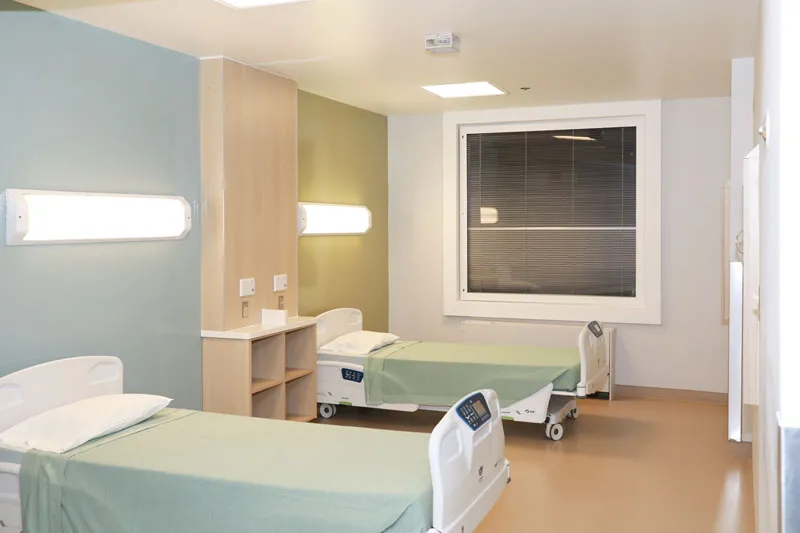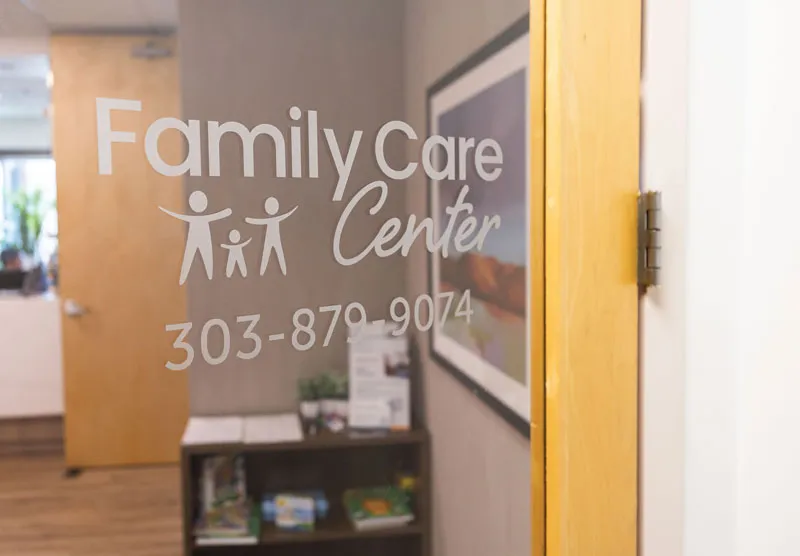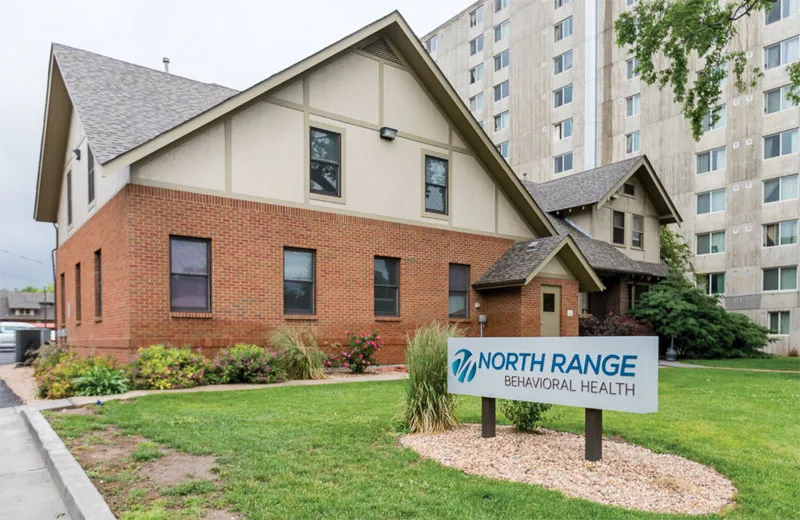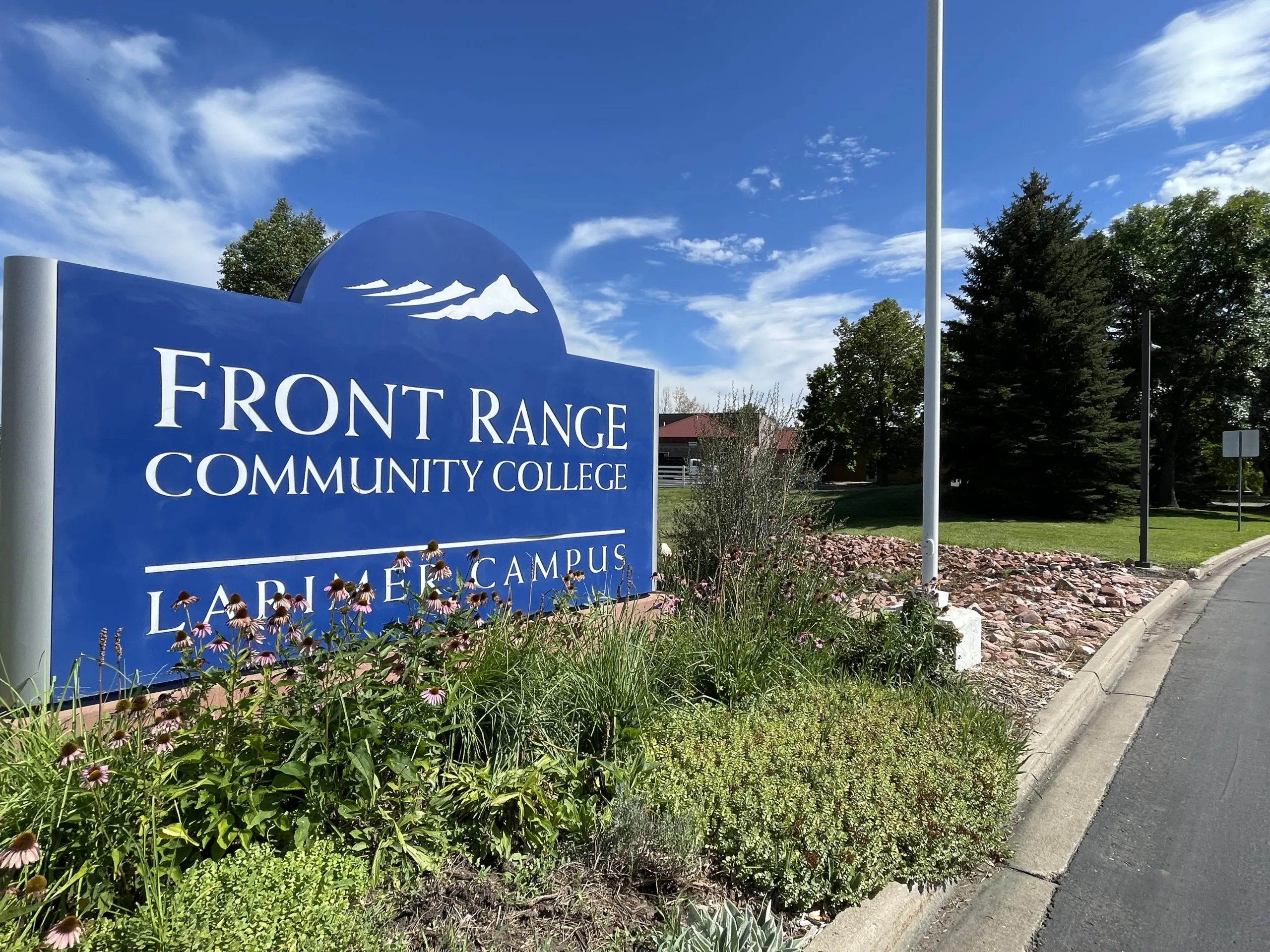Mental health prioritized post-COVID
New facilities open to meet demand for care

Mental and behavioral health has often taken a back seat to more traditional forms of health care, but, especially since the COVID-19 pandemic, the prevalence of mental illness has continued to rise, making it more important than ever that people who need mental health services have access to them.
According to a 2024 report by Mental Health America, Colorado ranks 46th out of 51 states and the District of Columbia in terms of mental-health needs and available mental health services. Nationally, 23% of adults experienced a mental illness in the past year, equivalent to nearly 60 million Americans, the report found, and 5% of adults and 13% of youth reported experiencing serious thoughts of suicide.
So how do Boulder, Broomfield, Larimer and Weld counties stack up when it comes to providing mental and behavioral health? The past year has seen a flurry of new facilities being built that include both outpatient and in-patient care for behavioral and mental health programs that are offering the latest technologies for treatment.
SPONSORED CONTENT
Most health agencies in the state agree that the biggest barriers to accessing care for behavioral or mental health disorders, aside from the stigma that still surrounds mental health treatment, are the cost of treatment and access to care.
According to Mental Health America, there are 340 people for every one mental health provider in the U.S. and 10% of adults and 8.5% of youth have private insurance that will not cover mental health.

Patient beds at HCA HealthONE Mental Health and Wellness Center. Courtesy HCA
Aleah Horstman, chief operating officer at HCA HealthONE Mental Health and Wellness Center, said that Colorado is 47th in the country for mental-health spending, from a state budget perspective.
“Doctors and clinicians that come in from other states are shocked by this. They think of Colorado as a pretty wealthy state with a lot of highly educated folks, but we are still 47th in how we allocate spending for mental health,” she said. “That is definitely going to impact a lot of our systems. We definitely feel that here.”
Horstman said that 28% of people who come in for surgeries at HealthONE have comorbidities with mental health and that 25% of the population suffers from mental health challenges.
“Unfortunately, those go misunderstood and mistreated or undertreated because of the stigma still connected to mental health. If we are not treating mental health disorders or challenges, they grow and get more challenging,” she added.
That means having to deal with inpatient treatment or intensive outpatient services, which are more expensive than if patients had accessed outpatient care earlier. Health insurance doesn’t often pay as much for mental-health care as it does for more traditional types of health-care coverage, she said.
In Northern Colorado, Johnstown Heights Behavioral Health, a 92-bed behavioral health center, closed its doors on March 31, laying off all 158 workers. That closure left a treatment gap in the area for those needing inpatient mental health care.
The facility offered mental-health crisis intervention, inpatient treatment, medication management, intensive therapy for mental-health issues, and treatment for substance-use disorder.
Horstman said that another mental-health facility also closed in Grand Junction this year. The closures have created challenges in the state for patient placement.
“With two hospitals closing within months I hope it is a wake-up call to the state that we need to do this differently,” she said.
Horstman’s Aurora facility has 120 licensed beds available for inpatient treatment, spread between adults, seniors, and children as young as 11 years old. One of the biggest challenges the hospital faces is finding qualified psychiatrists to work there, in part because of the exorbitant housing prices in the area but also the difficulty in getting reimbursed for their services.

The interior of the Family Care Center. Courtesy Dr. Kartiki Churi
Boulder Valley
Family Care Center expanded its presence in Boulder County with a new outpatient mental health clinic in Louisville in February 2025. The clinic offers everything from talk therapy and psychiatric care to transcranial magnetic stimulation or TMS, an FDA-approved, non-invasive treatment for people struggling with depression and OCD that did not respond well to more traditional methods of treatment.
This is the 18th Family Care Center in Colorado and the facility will soon have intensive outpatient services, or IOP, in the northern region as well. IOP facilities help support patients in crisis, those that require more than what outpatient services provide but want to avoid being hospitalized or losing work time by being in an enclosed facility. These services are offered regularly and provide intensive therapy, groups and structures to help support them getting back to normalcy.
“Oftentimes, there is a need in the community. Sometimes people don’t know there is a need until care is available,” said Dr. Kartiki Churi, vice president of Family Care Center’s Psychiatry Service Line.
“We take pride in providing quick access to patients. Most of our clinics, and Louisville, are able to see a new patient in the same week, which is unusual for mental health clinics,” she said.
The center also provides care across generations, from toddlers and adolescents to young adults, middle aged and geriatric patients.
Another behavioral health treatment center opened in December 2024 in Westminster. West Pines Behavioral Hospital is a 144-bed hospital that offers inpatient and residential treatment along with partial hospitalization and intensive outpatient programming for adults and seniors who struggle with mental health or addiction concerns. It also offers specialized inpatient services for adolescents ages 13 to 17.
Mental Health Partners recently merged with Clinica Family Health to form Clinica Family Health & Wellness. Combined, the company has 14 locations that serve families and individuals in Adams, Boulder, Broomfield, and Gilpin counties. Clinica offers outpatient services at clinics in Boulder, Lafayette, Longmont, Nederland, and Westminster, but plans to open a new crisis center in Louisville in 2025.
Clinica specializes in higher acuity cases such as serious mental illness. It also offers prevention programs, such as Coaches Care, which trains coaches how to spot signs of suicidal ideation, or wellness programs for kids. Clinica also offers individual and group therapy, a 24/7 walk-in crisis and addiction services center in Boulder as well as UrgentPsych, a psychiatric urgent care.
The organization prides itself on treating the whole person to determine what they need. One patient may need mental health services, a meal or a roof over their head, or another might need support after being in the justice system, such as anxiety or trauma services.
“There’s a rising need for mental and substance health services. We see a lot of this, particularly in the mountain west communities/states,” said Kristina Hernandez Schostak, director of business development for Clinica Family Health & Wellness. “There are rising mental health needs, and it is a trickier time than ever in terms of funding streams. Our mission is that everyone deserves access to excellent, compassionate care, and we want to do that to the best of our ability and there are significant challenges right now.”
The workforce pipeline is one of those challenges.
“Early intervention and prevention strategies can have similar effects to how we view preventative care in the physical health field. Early recognition and treatment can have a big impact on wellness plans and recovery,” she said. “Plus, it’s an incredibly fiscally responsible way to use public funding. Allocating funds to maintain community mental health services is proven to reduce funds needed for more expensive areas, such as emergency rooms and the criminal justice system.”
UCHealth Behavioral Health Clinic at Longs Peak Medical Center in Longmont started a new interventional psychiatry program a couple of years ago that provides electroconvulsive therapy, or ECT, in a hospital setting. The treatment, which has been around for years, has been greatly advanced and refined to help people with treatment-resistant depression disorders. ECT involves electrical stimulation of the brain while a patient is under anesthesia.
It is an intensive program that requires patients to initially come in for three treatments a week, “but it is life changing,” said Kelly Tracer, a spokesperson for UCHealth in Northern Colorado.
Last year, the clinic also began performing transcranial magnetic stimulation or TMS, which is a less intensive treatment than ECT that uses magnetic fields to stimulate nerve cells in the brain to improve symptoms of major depression.
Northern Colorado
Larimer County is unique in Northern Colorado in that its voters passed a behavioral health tax in 2018. For every $100 spent in the county, 25 cents support behavioral health services. The 20-year tax initiative, which went into effect in 2019, helped the county build an acute care facility at its Longview campus, which is between Loveland and Fort Collins.
The facility, which opened in December 2023, is available 24/7, 365 days a year to anyone of any age who is experiencing a behavioral-health crisis. It served 3,818 unique clients in its first year of operation, while 78% of visits were walk-ins, said Madeline Novey, communications specialist for Larimer County Behavioral Health Services.
The facility helps patients with medically assisted detox and withdrawal. It also helps with mental health crisis stabilization.
“We are looking at what impact the facility has on greater community resources,” Novey said. “By collecting data through our residency dashboard, the health department is tracking mental health-related 911 calls and where they go. That is one of the things the team is interested in looking at and affecting long term. Rather than ERs be filled with health-related calls, can this center relieve that stress and get individuals connected with the appropriate care and leave ERs for medical emergencies.”
By August or September 2025, the facility will have an adolescent unit for overnight care. It will have five licensed beds when it opens.
Some of the tax dollars collected have been spent to have licensed clinicians team up with law enforcement officers to respond to mental health-related 911 emergencies in Larimer County.
“The goal is to deescalate the immediate crisis, help the individual become stabilized and come up with a plan for care,” Novey said.
UCHealth is building an in-patient mental- and behavioral-health facility at Poudre Valley Hospital in Fort Collins that is expected to open in November with 50 inpatient beds across three units, adolescent, adult, and acute care. The health provider will open an outpatient clinic across the street from the hospital in October. Both facilities will replace the services currently offered at UCHealth Mountain Crest Behavioral Health Center in Fort Collins.
The inpatient facility will work with individuals in crisis who either come there voluntarily because they realize they need extra support or come there involuntarily on a mental health hold because they are unsafe or gravely disabled and can’t be left alone, said Daphne Huegerich, managing director of Behavioral Health for Northern Colorado.
Mountain Crest only has five in-patient beds to accommodate that level of crisis, “which creates a choke point for getting people to the hospital,” said Dr. Jason Collison, medical director for Behavioral Health for Northern Colorado. Being able to treat more patients at one time allows the health care providers at the facility to get patients stabilized as quickly as possible before referring them to outpatient services.
If there are no psych beds available and patients can’t get the help they need immediately, they end up stuck in the emergency department, he said.
The outpatient clinic will offer therapy, psychiatry, medication management and psychotherapy. It is also the first facility in Northern Colorado to offer ECT, TMS and esketamine treatments in one place.
Esketamine is an FDA-approved version of ketamine that was developed for the treatment of depression. It can “take someone suicidally depressed and within one treatment reduce that risk for suicide,” Collison said. “It has approval for non-suicidal patients as well, which can shorten hospital stays or prevent hospitalizations.”

The exterior of North Range Behavioral Health’s Hazel Chick Center in Greeley. Courtesy North Range Behavioral Health
North Range Behavioral Health serves Weld County residents at 25 different locations, most of which are in Greeley. The different locations offer outpatient therapy for families and individuals, education and wellness workshops, crisis services, residential and inpatient care. A psychosis team is available to help teens and adults manage psychosis through medication, counseling and case management.
“If there is a silver lining to COVID, it is that everyone normalized and destigmatized mental health,” said Kim Collins, CEO of North Range Behavioral Health.
The pandemic exacerbated many mental-health conditions, she said. “Isolation is not good for anyone. Healing happens in relationships and, for a long time, people didn’t have supportive relationships.”
Five years removed from the lockdowns, “individuals are more in tune with their behavioral-health needs and emotional struggles,” Collins said. “It is a beautiful thing.”
Depression, anxiety and loneliness are still rampant. The U.S. Surgeon General called it a “connection crisis.”
The lack of person-to-person relationships can lead to substance abuse, unhealthy relationships with abuse dynamics, and online bullying.
North Range has multiple residential situations for crisis and acute care. Mobile crisis teams are available 24/7 to respond to mental health crises anywhere in the county. There’s also a 24-hour crisis walk-in center and a crisis team that can field phone calls from people who are feeling overwhelmed. The Acute Treatment Unit is for individuals who are thinking of harming themselves or someone else and need to get stabilized or started on medications. They can stay for a couple of days or as long as they need.
There are also more intensive substance abuse units where individuals can stay for a month or two, depending on the treatment they need. Other facilities allow individuals to stay in a sober living environment for months with case managers checking in on them while they figure out what their next steps will be.
The municipalities within Weld County are supportive of North Range’s programming and offer braided funding, meaning they pool their funds to make sure that anyone, no matter their financial picture, can access mental health services within North Range.
Mental and behavioral health has often taken a back seat to more traditional forms of health care, but, especially since the COVID-19 pandemic, the prevalence of mental illness has continued to rise, making it more important than ever that people who need mental health services have access to them.




